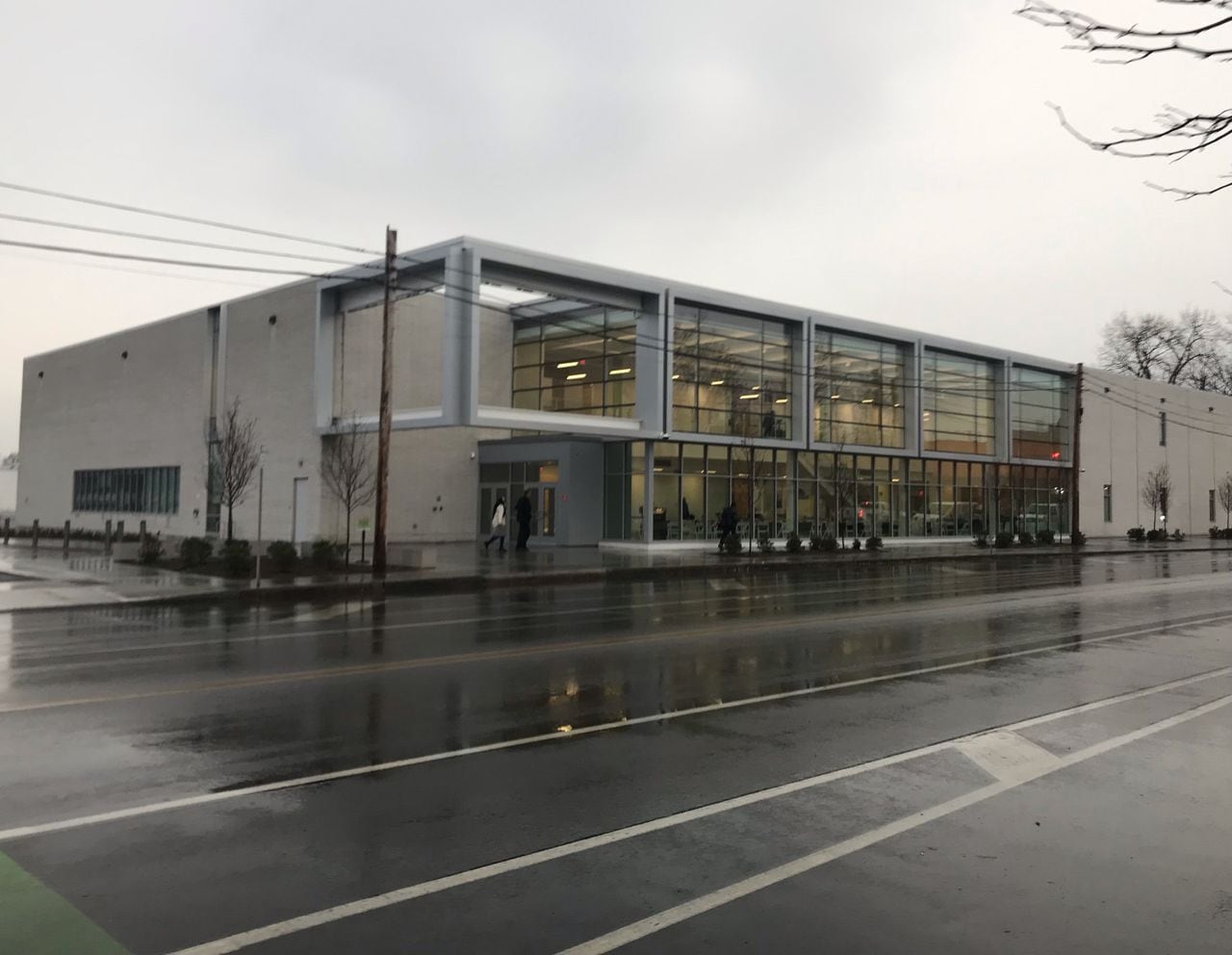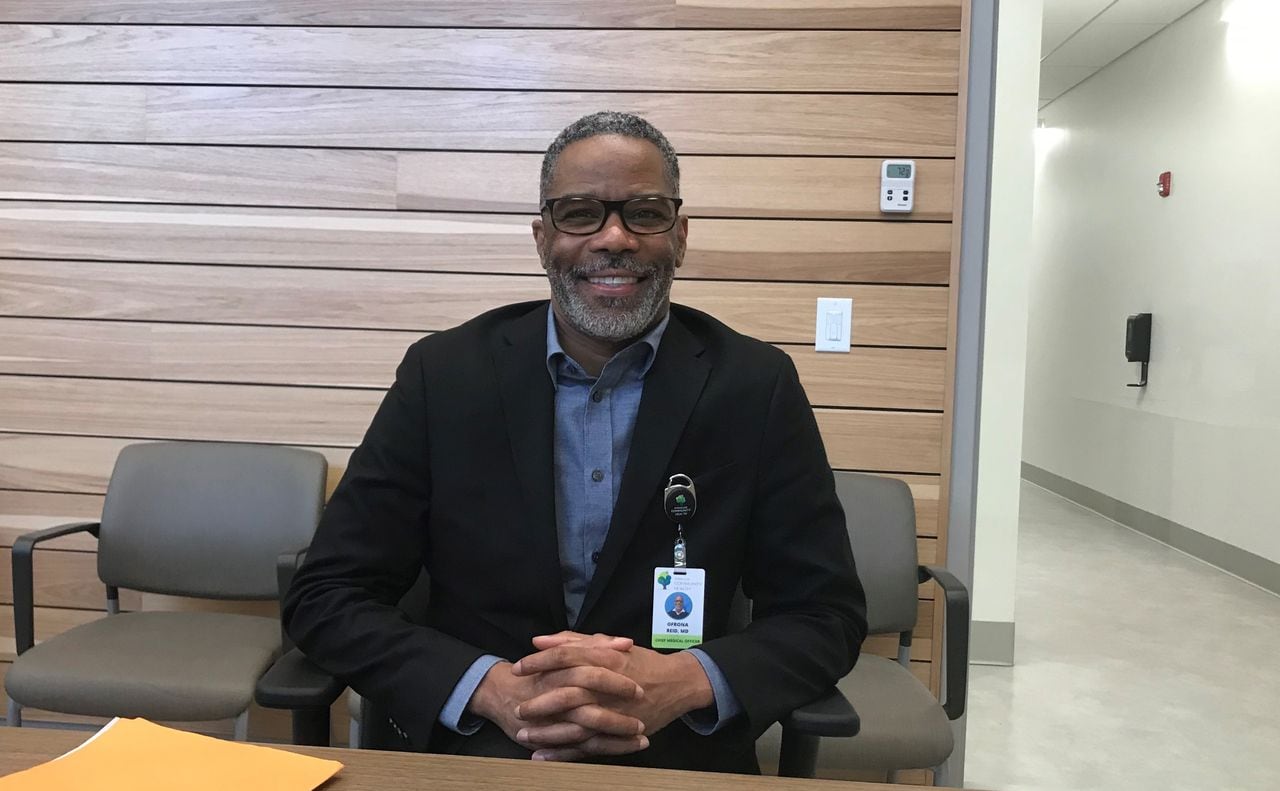Syracuse, NY -- Syracuse Community Health just moved into a new, $22.5 million headquarters at the southern gateway to downtown.
At the ribbon-cutting in early December, CEO Mark Hall announced the center would be getting a new leader, too.
Dr. Ofrona Reid, an internal medicine doctor with six years of experience in administration, took over as interim President and CEO in January.
“I’m an African-American doctor,” Reid said. “The community needs to see an African-American doctor. This is where I need to be.”
Reid inherits a vitally important medical institution, founded in 1978, that is often overshadowed by the city’s bigger hospitals. The center’s nearly 30,000 patients include some of the region’s most vulnerable. Its mission as one of 1,300 federally subsidized health centers is to cater to those without insurance. It gets roughly $5.1 million in federal grant money each year to provide care for the uninsured, or roughly 18% of the health center’s annual budget.
It’s a population that Reid says he can relate to from his own childhood experience.
One of 13 children, he grew up poor on Long Island and the Bronx, he told syracuse.com | The Post-Standard. He knows the reality of buying dinner with food stamps. Sharing a bed with a sibling. The pangs of hunger that come from having nothing to eat until school lunch.
“I don’t feel a stranger,” Reid said of the patients’ struggles. “This is how I grew up.”
Reid says he got low-income grant money to attend SUNY Morrisville, where he became an All-American Division III wrestler in 1989. (His wrestling prowess led to a full scholarship to attend D-I Manhattan College in the Bronx.)
It was a culture shock, coming from New York City to a small Upstate village. But it was also where Reid took a required biology class. And he was hooked and astonished to learn where his newfound interest could lead.
“You mean, I can become a doctor?” he recalled thinking in amazement.
Fast-forward a few decades, Reid is now a doctor specializing in internal medicine, with advanced degrees in business administration and healthcare leadership from Cornell University.
Hall, the retiring CEO, grew up on Syracuse’s South Side and went to the health center as a child. He recruited Reid from Oneida Health a few years ago. At the time, Reid became the Syracuse health center’s chief medical officer, the same job Reid had held at Oneida Health.
Reid became interim CEO this year after the unexpected death of Chief Operating Officer Keith Cuttler in November 2023. Reid and the health center board agreed to have him begin as the interim CEO, but the expectation is that he will eventually take over permanently, according to Reid, Hall and board members.

Syracuse Community Health opens its new 56,000-square-foot facility at 930 S. Salina St. It's actually smaller than the center’s 70-year-old home, but is intended to provide a better patient experience due to better design.Douglass Dowty | syracuse.com
Reid’s priorities for the health center include trying to reach more underserved residents for preventative care and placing an emphasis on behavioral health.
A key part of that is the center’s Quick Care, which provides urgent care downtown, 8 a.m. to 8 p.m. weekdays and noon to 8 p.m. Saturdays. (It remains at the health center’s old building, 819 S. Salina St., not at the new building at 930 S. Salina St.) There’s also a walk-in dental clinic with slightly shorter hours.
Clients can also walk in during normal business hours for a variety of other services, including eye care, podiatry, pediatrics, OB-GYN, radiology and mammograms, Reid said.
Often, it takes an urgent medical problem for people to see a doctor at all, Reid said. So reaching them at Quick Care to teach them about preventative care is essential.
For example, someone who comes in with a sexually transmitted disease might get education on safe sex practices and family planning, Reid said. They’ll be scheduled to come back to see a doctor in the future, he added.
The center has added about 3,000 new patients from Quick Care since it started two years ago, Reid said. The center hopes to welcome more.
Even among regulars, however, keeping tabs on patients can be a struggle: roughly 25% of the time, people don’t show for their appointments, Reid said. That’s actually slightly better than the national average for similar centers, he said.
The center employs “care coordinators” whose job it is to check in with patients between visits.
“That transition space is key,” Reid said.
The center doesn’t only cater to those in its immediate neighborhoods on the South, East and Near West sides.
An ambulance diversion program through AMR allows anyone in the county to opt for Quick Care instead of a hospital emergency room, which is often overcrowded with long wait times. And during the Covid-19 pandemic, the health center operated the largest testing site in the county at its old headquarters parking lot.
The center’s financial situation is more stable than it was a few years ago, its non-profit tax returns show. In 2021, it saw $24.8 million in revenue, with $22.4 million in expenses. That was the fourth year in a row with a positive balance sheet. By comparison, it lost $1.7 million in 2017, records show.
Both Reid and Hall know the financial struggles of keeping an institution like the center afloat. But they tried to place it in the backseat to care.
“The money is easy,” Hall said, adding that the challenge is providing a positive experience that encourages patients to come back.
“I wasn’t even going to talk about (money) until you brought it up,” Reid said. “It’s really about the patient coming in the door.”

Syracuse Community Health is opening its new 56,000-square-foot facility at 930 S. Salina St. The new facility includes an improved, more welcoming breast care center (pictured here), as well as the center’s primary care, dental services, pediatrics and obstetrics and gynecology services.Douglass Dowty | syracuse.com
Staff writer Douglass Dowty can be reached at ddowty@syracuse.com or (315) 470-6070.
